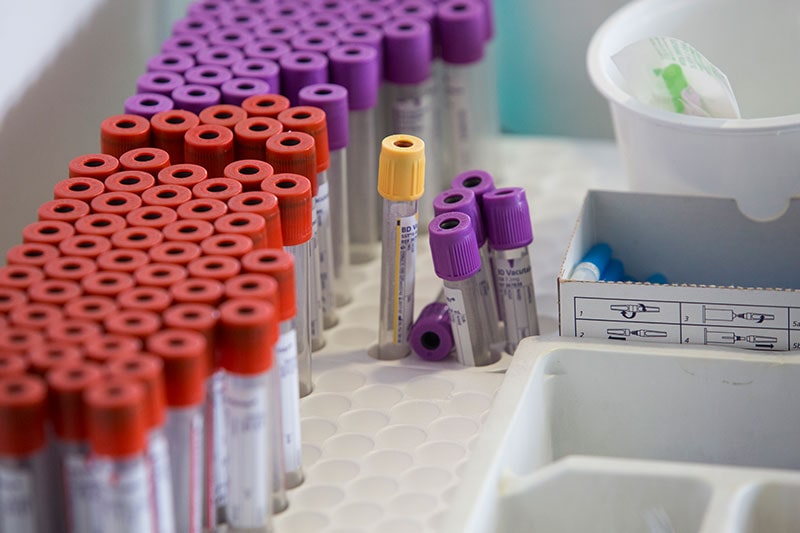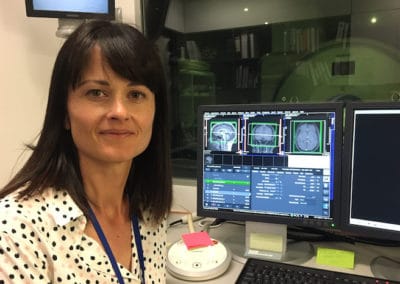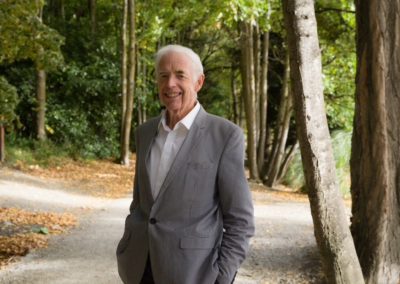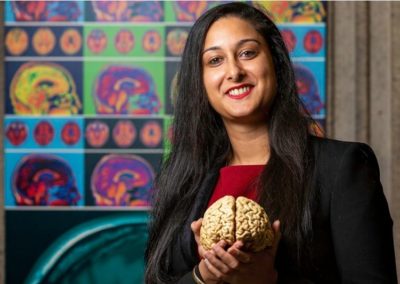As part of its annual funding round, the Health Research Council of New Zealand (HRC) has just awarded $55.56 million to 49 projects with the potential to improve the health of New Zealanders. The projects span across public health, biomedical research, Māori and Pacific health. And some of them – led by investigators of Brain Research New Zealand – focus on how to keep our brains healthy and our memories alive.
Dr Vernon Choy, Director of Research Investments and Contracts at HRC, says that this year’s proposals once again prove that New Zealand researchers are leading the way in identifying novel solutions to difficult problems: “All of them delve into important health issues, and many pose questions that affect us all in some way – they really do have the potential to improve the lives of all New Zealanders.” Brain Research New Zealand is proud to be part of this; congratulations to all our researchers on their success!
Read on to find out more about the successful research projects (focused on brain health as well as other health issues):
Associate Professor Maurice Curtis, The University of Auckland: Identifying the first signs of dementia in humans
36 months, $891,792
Imagine being told you have dementia and that it could have been treated if it was detected in the preclinical stage. We hope to identify the earliest signs of dementia through blood tests, smell tests and early tests of a person’s thinking. Dementia is characterised by personality change, deficits in executive function, and language impairment. Successful treatment of dementia will require early detection and intervention, before major cell death in the brain has occurred. Understanding the earliest changes that occur in the brain and blood of people at high risk of developing dementia is the focus of this project. We hope to reveal the earliest changes that occur in the body to determine firstly, if we can identify early signs of dementia, and secondly, if we can identify therapeutic targets that can be modulated at this early timepoint to halt disease progression before it affects personality, behaviour, and executive function.
Read more about the project here.
Professor Wickliffe Abraham, University of Otago: Mechanisms of neural network metaplasticity via astrocytes
36 months, $1,175,591
The ability to learn and remember is fundamental to all mental processes. In the brain, learning occurs through changing the strength of transmission at the synaptic junctions between nerve cells. Impairments in this function lie at the heart of the cognitive problems seen in many neurological disorders, including Alzheimer’s disease, head injury and stroke. We have discovered a novel form of synaptic plasticity impairment that involves a non-neuronal cell type, astrocytes, that are activated by particular patterns of nerve cell activity. This mechanism may play an important role in maintaining normal levels of brain activity, while its abnormal activation may generate synaptic impairments in Alzheimer’s disease. In this project we will utilise neurophysiological, imaging and genetic approaches to reveal the fundamental mechanisms mediating the impairment in plasticity. Understanding these processes may help identify new molecular targets for therapeutic interventions to rescue diseased memory and cognition.
Read more here.
Associate Professor Nicola Kayes, Auckland University of Technology: Evaluating a sustainable model of peer mentoring in traumatic brain injury
36 months, $1,192,532
More than 30,000 people have a traumatic brain injury (TBI) each year in New Zealand. Despite improvements in acute care, our research highlights people with TBI and their whānau live with ongoing and significant disabling consequences. Providing support by people who have successfully been through the same situation (peer mentoring) is a promising strategy for enhancing life after TBI. Our HRC funded feasibility study of a novel, NZ-appropriate peer mentoring programme for people with TBI promoted a sense of hope, gave participants confidence to re-engage in community activities, and supported the development of personalised strategies for living well. The proposed randomised pragmatic waitlist trial with process evaluation aims to test the effectiveness of peer mentoring for improving participation, health and well-being outcomes following TBI. We will work with key funders and providers to explore key process variables relating to context and implementation to underpin a framework for ongoing service provision.
Dr Kelly Jones, Auckland University of Technology: Reducing fatigue after stroke: A randomised controlled trial 36 months
36 months, $1,188,578
Fatigue is a common and persistent deficit in up to 92% of stroke survivors that can negatively impact functioning. It is imperative that new strategies be developed to tackle post-stroke fatigue, a debilitating but often overlooked sequelae of stroke. Cognitive and behavioural (educational) interventions for fatigue have been successful in other conditions (e.g. traumatic brain injury, multiple sclerosis, chronic fatigue syndrome), but have not been fully examined in the context of stroke. Building on promising findings from our pilot study, this full-scale randomised controlled trial aims to assess the effect of the intervention on reducing physical, psychological and mental fatigue and improving quality of life in stroke survivors. Family carer quality of life and burden, as well as impact of the intervention on other functional outcomes and costs will also be examined. This trial has potential to improve quality of life and day-to-day functioning for stroke survivors and their families.
Professor Ngaire Kerse, The University of Auckland: Staying UpRight in residential care
36 months, $1,443,303
Older people fall frequently in residential aged care with disastrous consequences including injury and hospitalisation. Preventing falls in care homes has been difficult. This project tests an exercise programme specifically designed for people with dementia in comparison to seated exercises to see if falls and injury from falls can be prevented. Cost-effectiveness analyses will see whether there is a return on investment. If this exercise programme is successful, those in care homes will benefit and costs will be saved. A novel feature of this application is body-worn sensor monitoring of participants to establish gait parameters and activity patterns. Amount of activity will be used as an outcome for the trial, falls/active time, and gait patterns and parameters will be examined between those with and without dementia and in response to the programme. Individualised programmes designed specifically to meet newly-identified patterns will be designed to prevent falls.
Professor Pauline Norris, University of Otago: Randomised controlled trial of prescription charges
36 months, $1,032,941
Although prescription charges in New Zealand are low compared with many other countries, many people report that they cannot afford the medicines they need. We plan to conduct a randomised controlled trial of prescription charges to see whether removing charges would improve people’s health. We will recruit a group of people who have diabetes and/or ongoing mental health conditions requiring medication, and who live in deprived neighbourhoods. We will divide the group in half and pay prescription charges for one group for 12 months. We will then compare how many days people from each group spend in hospital to see whether free prescriptions make a difference. Additional differences in health services, quality of life, and medicines use between the groups will also be investigated.
Professor Margaret Brimble, The University of Auckland: Naturally occurring peptaibols: “Magic bullets” for targeting breast cancer
36 months, $1,195,373
Amplification of human epidermal growth factor receptor 2 (HER2) occurs in 20% of breast cancers and confers an aggressive tumour phenotype with a poor prognosis. There is currently no cure for advanced HER2-positive breast cancer. By combining the targeting power of HER2-directed antibody (trastuzumab) with the cell killing capability of a novel cytotoxic molecule discovered in our group, it is possible to kill cancer cells more effectively. The Antibody–Drug Conjugate compounds (ADCs) generated by this project ultimately have the potential to increase progression-free survival rates in patients with HER2-expressing metastatic breast cancer. Even in the absence of being a ‘cure’ the technology also has the potential to increase the quality of life for patients who are terminally ill allowing them to have extra years of life where otherwise they may not.
Professor Leigh Hale, University of Otago: Co-creating a digital self-help intervention for people with persistent pain
36 months, $1,198,177
Persistent non-cancer pain affects more than one in five New Zealanders. Māori, people living in areas of high deprivation, and older adults are at greatest risk. The best evidence for longer-term benefits of persistent pain management are for group-based, multidisciplinary pain management programmes (PMP) that focus on behavioural interventions. However, there is poor access to multidisciplinary PMP for people living in remote and rural areas due to transportation costs and long waiting lists. Web-based technologies are an alternative way to deliver behavioural interventions. Although online-delivered interventions have been successful in improving persistent pain, none were developed with patient co-design nor compared to group-based, in-person PMPs. We plan to do both. The primary aim of this project is to co-create an evidence-based, culturally appropriate, online-delivered intervention called iSelf-help and evaluate its clinical and cost-effectiveness compared to group-based, in-person delivered PMP in reducing pain-related disability at six months.
Dr Reremoana Theodore – Co-investigator on: Mr Andrew Sporle, Independent Researcher, Auckland: Te Hao Nui
36 months, $1,198,494
This project will be a longitudinal study that will link together the data from Te Kupenga, the Integrated Data Infrastructure (IDI) and the Longitudinal Census Database to create the world’s largest and most comprehensive indigenous longitudinal study capable of following individual pathways forwards and backward in time. Focusing on informing local interventions and policy, this project will transform national statistics into locally accessible information linked into service delivery planning and evaluation at the iwi, rohe as well as regional level. Linking into existing iwi and regional Maori development plans, this project will produce information that will immediately inform the delivery of services and interventions to improve rangatahi wellbeing. It will create a permanent resource within the official statistics system that can be used for research, evaluation, and monitoring of rangatahi wellbeing on an on‐going basis.
This funding comes in addition to grants that HRC awarded to BRNZ members earlier this year:
2018 Feasibility Study grant
Dr Sarah Cullum, The University of Auckland: Is a dementia-prevalence study feasible in NZ?
15 months, $249,311
Dementia is a global health priority. Governments across the world are developing policy and planning services to manage the rapid rise in prevalence. We need to do the same in New Zealand, but to date we have only extrapolated from other countries’ statistics and therefore do not have a clear idea of the true extent and impact of dementia both overall and, in particular, in Māori and Pacific people who are likely to be at greatest risk.
A dementia prevalence study that represents all major ethnic groups in NZ is needed to (1) measure the true extent of dementia in NZ; (2) examine the risk factor profiles in each ethnic group; (3) measure the burden on family caregivers, and (4) determine the economic impact of dementia on families and on society. Our proposed research will test the feasibility of conducting a full scale national NZ prevalence study of dementia.
2018 Māori health research emerging leader fellowship
Dr Reremoana Theodore, University of Otago: Rangahau Ara Oranga
48 months, $500,000
The proposed fellowship is designed to help build an evidence base around educational exposures, experiences and programmes that improve Māori health over time. This fellowship will enable me to undertake longitudinal research examining the impact that education in early childhood, adolescence and at tertiary levels has on Māori health. The first project involves undertaking Māori community-based research that generates evidence for early life interventions and education programmes to achieve sustainable positive outcomes across the lifecourse for tamariki. The second project involves longitudinal research on rangatahi health and education via the use of linked administrative datasets. The third project involves examining the benefits of higher education to reduce inequalities over time and support long-term positive health and wellbeing outcomes for Māori university graduates, their whānau, communities and society. A fourth aim is to develop as an emerging Māori health research leader.
2017 NZ-China non-communicable diseases
Dr Yiwen Zheng, University of Otago: Using Chinese medicine to treat tinnitus: targeting metabolic networks
24 months, $404,057
Chronic tinnitus is a debilitating condition that significantly reduces quality of life and presents a considerable socio-economic impact to society. Its prevalence is expected to increase in the future due to an increased elderly population as well as risky music-listening behaviours. Importantly, no effective treatment is available, as tinnitus is likely a result of changes in complex interactive networks. One significant gap in tinnitus research and drug development is a lack of biomarkers that reflect the consequences of this interactive ‘tinnitus-causing’ network and drugs that can effectively modulate this network. We will pursue this novel and exciting direction by testing promising Traditional Chinese Medicine in a well-established animal model of tinnitus and targeting metabolic biomarkers with cutting edge metabolomics technology through a unique collaboration between NZ and Chinese research teams. The proposed research will significantly advance the understanding of tinnitus and provide biomarkers useful in developing effective treatments for tinnitus.



